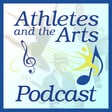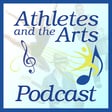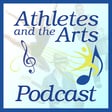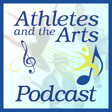
Game Set Match with Jesus Florido
Yasi and Steven talk with the energetic Jesùs Florido, a one-time competitive tennis player turned professional violinist, composer, producer and entrepreneur. An innovator at heart, Jesus takes you through his athletic career, its unintended impact in his musical development, his unique musical fusion style, developing into a music virtuoso, and his work in developing music careers through the Màs y Màs Music Foundation.
For more on Jesùs' career, go to https://www.jesusflorido.com
Instagram: @latinfiddler
Bio: With his debut, Heading North, violinist, composer, and bandleader Jesus Florido introduces compelling artistry balanced on a fine axis of musical virtuosity and pure heart. "This album came about from what is not out there from an instrumental point of view," he explains. "Jazz, rock, classical, Latin -- my album is a melting pot."
The savory list of sonic influences can be traced back to Venezuela, Jesus' home, and its pastiche of Cuban, Dominican, Trinidadian, and African cultures. Jesus' family is Italian, and in the grand European tradition, opera and classical music also informed his early years.
He arrived in the U.S. to further his studies in musical academia but was soon performing in cavernous arenas to enormous audiences with Yo-Yo Ma, the Moody Blues, Jimmy Page & Robert Plant, and Whitney Houston. This high-profile exposure fueled the fire to ignite his own solo career.
Heading North is notable for the contributions of the musicians, producers, engineers, and programmers who join Jesus. "It was important to me that project was different from the get-go," he relates. "I wanted to communicate on a higher level." Heading North features a superlative ensemble.
Jesus composes in an unconventional miracle of pure inspiration, building songs from a rhythmic and harmonic base -- chords and a drumbeat -- then improvising on top of them. "I may clean it up, but I assure you, on every track what you hear is exactly what came through my head at that moment. To write fresh music I have to recall exactly how I felt about the tune the first time I heard it," he reveals.
Across this vivid spectrum of music, the unmistakable timbre of Jesus’ violin remains an indelible voice connecting the songs that comprise Heading North. From the sophisticated veneer of the title track to the incendiary Latin grooves of "Mi Negra," the prog-rock influenced "Con Todo," the electro-Santeria vibe of "Gitano" to the funk-informed "Olividado," Jesus bends rhythmic and melodic structures to his will. "Every song is a story without words," he relates. "If I can tell it to the audience when they listen to my record, then I've succeeded." With his violin as a compass, Jesus Florido heads toward a limitless musical horizon with a stunning debut, Heading North."



